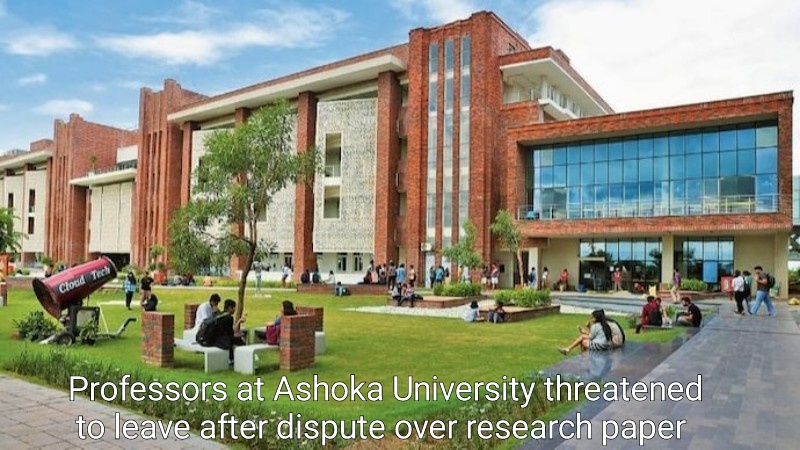
Two faculty members have resigned from Ashoka University in the past week amid criticism surrounding the research paper on the 2019 Lok Sabha elections. The university’s faculty members protested, stating that the governing body’s ‘interference’ in the procedure to ‘investigate the merits’ of the research was likely to ‘precipitate an exodus of faculty.’
Ashoka University assistant professor Sabyasachi Das resigned due to controversy surrounding his study, ‘Democratic Backsliding in the World’s Largest Democracy.’ In his article, Das made the case that the BJP, particularly in areas where it was the current ruling party, won an excessive share of hotly contested parliamentary seats in the 2019 Lok Sabha elections.
On July 25, the study was posted on the Social Science Research Network.
Ashoka University dissociated itself from the research report after it became the subject of political mudslinging between the BJP and the opposition parties. The university stated that while it encourages professors to conduct research, it does not ‘direct or approve specific research projects by individual faculty members.’ The institution was ‘dismayed’ by comments surrounding Das’s research article.
A few days later, Sabyasachi Das submitted his resignation, which the vice chancellor of the institution accepted. Another professor in the department of economics, Pulapre Balakrishnan, has since turned in his papers.
Professor Somak Raychaudhury, the vice chancellor of the university, responded by stating that Dr. Das was now on leave from Ashoka and working as a visiting professor at the Pune-based Gokhale Institute of Politics and Economics (Deemed to be University). The University has accepted his resignation despite strenuous attempts to discourage him.
To the governing board, Sabyasachi Das’ coworkers have sent a letter threatening a ‘faculty exodus’ if he is not given reinstatement.
‘Unless these questions regarding basic academic freedoms are resolved before the start of the Monsoon 2023 semester, faculty members of the department will find themselves unable to carry forward their teaching obligations in the spirit of critical enquiry and the fearless pursuit of truth that characterise our classrooms,’ the letter stated.
Professor Somak Raychaudhury said in a statement that ‘the faculty’s freedom to teach and research, underlining the institution’s enabling environment for academic freedom’
The institution does not supervise or direct professor or student research, according to Raychaudhury, who also insisted that academic achievement is still a fundamental value.

Post Your Comments